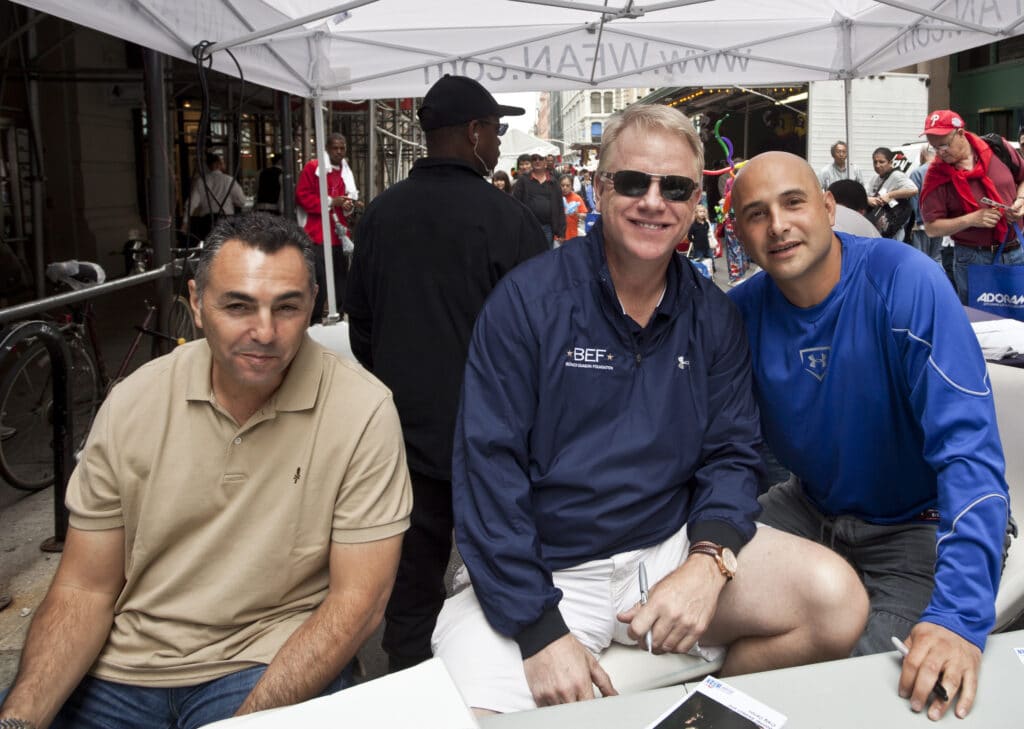A disclaimer — made in passing by the subject at the start of the HBO documentary Wild Card: The Downfall of a Radio Loudmouth that premiered on Wednesday night — at first seemed innocuous enough.
Former WFAN sports radio talk show host Craig Carton declared to the camera that he would answer any question, as long as his wife and family were off the table as topics.
None of them, of course, was involved in his concert ticket-focused Ponzi scheme that left him serving more than a year in a Pennsylvania prison after a fraud conviction.
But the blanket disclaimer also seems to have applied to his victims of the scam, and to too many others caught up in his web of lies and deceit.
And while Carton’s compulsive gambling eventually is addressed extensively, the documentary doesn’t delve deeply enough into the wake of destruction he caused.
The film works a bit better for those simply interested in the life and times of Carton himself.
But even there, we are too often asked to take the word of a convicted felon about that life.
The core of Carton’s troubles?
The most powerful moment of the film, then, is not exactly when Carton declares himself the victim of repeated sexual abuse as a child.
Instead, it is taped video footage of Carton emotionally railing against ex-Penn State coach Joe Paterno for what Carton insists was an outrageous unwillingness to act on evidence that former Nittany Lions assistant coach Jerry Sandusky abused boys during Paterno’s tenure.
Boomer Esiason, the one-time Bengals and Jets quarterback and WFAN co-host with Carton from 2007-17, adds his recollection of the topic and how he had never seen Carton — a self-proclaimed “goofball” — appear so serious about anything before that.
But too often, the producer and director seem content to let Carton paint his own picture — such as when he dramatically suggests ex-Teamsters boss Jimmy Hoffa and mobster John Gotti were among his fellow alumni from a Lewisburg, Pa. prison. Carton, though, served time in a nearby minimum security satellite camp.
As for the gambling issues, about 25 minutes into the 80-minute documentary it depicts the downward spiral beginning in June 2014. Carton promised on the WFAN radio show that if Esiason gave him $10,000, he could turn it into $25,000 through a night of blackjack at Borgata in Atlantic City.
Carton admits now that it was “stupid,” but he also claims that he won $80,000 that night.
“The real problem with the ‘Boomer bet’ is that I won,” Carton recalled. “As a result of that win, I’m now ‘the blackjack whisperer.'”
The downward spiral
Carton began receiving calls from gamblers who were willing to give him $100,000 and more, based on his boasts.
“There were four different individuals — two of whom I have never met, to this day — who extended me loans of upwards of a million dollars,” Carton said. “There were times when I’ve had money on the street corners of New York City, and he would hand me a knapsack, and inside of that knapsack was a million dollars — cash. Blackjack became a drug for me.”
Carton, who says he once won $325,000 at the table in nine minutes, typically would drive 2 1/2 hours each way to and from Atlantic City. Sometimes, he would take a helicopter ride from the gambling city back to Manhattan just in time to go on the air at 6 a.m.
“I didn’t think any casino could beat me,” said Carton, who absurdly compared himself to Michael Jordan and Tiger Woods in terms of competitiveness.
In May 2016, Carton got involved with what turned out to be co-conspirators in the ticket scheme. Carton then obtained $2 million from a hedge fund operator to purchase even more tickets, but instead he used nearly half of that money to gamble.
Carton was arrested — and fired — in September 2017.
“I had a dream job, but it was never enough to make me happy,” Carton said. “I had it all. I made more than $2 million a year, and now it’s all gone.”
Back to the beginning
Carton, 51, grew up in New Rochelle, N.Y., as the middle child of three in quintessential suburban America, where Carton says he was “always fighting for approval.”
After graduating from Syracuse University in 1991, Carton took on a series of sports talk radio gigs before a fateful slur by WFAN morning show icon Don Imus in 2007 led to his own ouster.
Carton was paired with Esiason, who provided gravitas to Carton’s court jester personality, and the ratings were proof of their chemistry.
The documentary even allows Carton to downplay his crimes.
“The one thing I’m guilty of is misappropriating the hedge fund’s money,” Carton said. “I spent their money five weeks before the money should have been spent. Now, I still bought everything [in tickets] that they expected me to buy, but still the timing of when I did it, is illegal.”
Carton also said that after a ticket-broker colleague was arrested, his fear of facing the same fate grew so intense that he claims he seriously considered suicide by jumping off a ski lift in the resort town of Whistler, British Columbia while on vacation with his wife.
Again, the story only becomes truly credible when a former colleague describes getting such a phone call from Carton.
The next step — a dangerous one?
Now Carton is rumored to be on the verge of getting another shot on WFAN, this time co-hosting an afternoon show.
But given the Carton we see in the documentary, and the fact that the brave new world of legal sports betting across the U.S. has led WFAN to be so gambling-centric, is that the best place for Carton these days?







